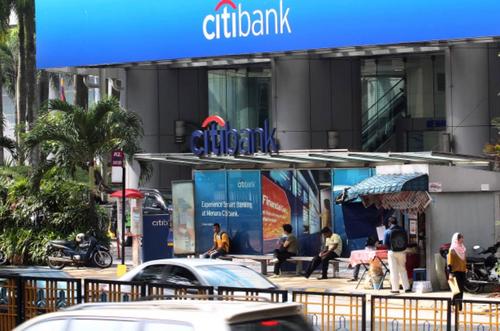
By Tyler Durden
The fact that America’s biggest banks (not to mention many of its biggest companies) have embraced virtue-signaling on issues like racial equality and representation is nothing new. But in the race to be seen as the most beneficent megabank on Wall Street, Citigroup appears to be pulling ahead.
One year after releasing a 104-page paper purporting to analyze the impact of racism and inequality on America’s economy – the analysts ultimately determined, in a report that reads more like propaganda than sell-side research, that “systemic racism” has helped to destroy some $16 trillion in economic value over the last 20 years – Citigroup (which, remember, is now being led by Jane Fraser, the first woman to lead a Wall Street megabank) has just announced Friday that it plans to hire a law firm to conduct a “racial audit” – making it the first Wall Street bank to do so.

According to a statement posted to Citigroup’s website on Friday, the bank’s racial audit will be conducted by attorneys at Covington & Burling LLP (ironically, a white-shoe law firm).
Citi said the audit will focus on determining how good of a job the bank is doing in meeting a major commitment it made last year to spend $1 billion on initiatives it says will help close the racial wealth gap in the US (something that has been greatly exacerbated in recent years by the actions of the Federal Reserve). According to Bloomberg, the average net worth of a white family in the US is nearly 10x higher than that of a black family.
Announced by Citi in September 2020, in the wake of the racial equality/anti-police brutality protests that shook cities and towns across the US, the “Action for Racial Equality” (ARE) initiative “is designed to (1) provide greater access to banking and credit in communities of color, (2) increase investment in Black-owned businesses, (3) expand affordable housing and homeownership among Black Americans, and (4) advance anti-racist practices in our company and the financial services industry.”
Citi’s decision to move ahead with the audit comes after a shareholder proposal to conduct one was voted down at the bank’s annual meeting. It was opposed by management, but still managed to garner support from roughly one-third of Citi shareholders.
One senior Citi exec was quoted in the statement praising the bank’s efforts to hold itself accountable by bringing in a supposedly neutral “third party”.
“Measurement and transparency are important components of the work we are doing to advance diversity, equity and inclusion,” Edward Skyler, executive vice president at Citigroup, said in the statement. “We’re demonstrating our ongoing support for measurement and transparency by committing to conduct a racial equity audit.”
While no other Wall Street megabanks have said they’d like to undergo an audit, global asset management giant BlackRock (which, remember, was explicitly tapped by the Fed to help hoover up assets – in this case, fixed income ETFs – on the central bank’s behalf) has said it plans to conduct one in 2022.
Aside from the ARE initiative and the audit, Citi has reportedly been saying it wants to improve black representation among its workforce. According to BBG, it has made some slight progress in this.
The firm has also been vocal about its desire to increase Black representation among its management ranks. Citigroup has said it hopes to boost the number of Black employees in the assistant vice president to managing director levels to 8% in the U.S. by the end of the year, up from 6% in 2018.
Overall, Black employees made up roughly 10% of Citigroup’s U.S. workforce in 2020. They make up about 7.6% of the top three ranks within the company, according to data compiled for regulators.
While the audit sounds good in the headlines, and might win Citi some accolades from progressive activists (not to mention the Biden Administration, since President Biden signed an executive order supposedly addressing racial inequality), in reality, hiring a law firm to tell Citi whether or not it’s living up to its commitments (something the bank is perfectly capable of discerning for itself) is similar to hiring a law firm to conduct an investigation after a corporate scandal. Even though the law firm is independent and supposedly has experience conducting these types of audits, Citi is still the one paying for the audit.
Now that Citi has committed to this audit, we imagine its rivals will come forward with similar commitments to either institute more virtue-signaling programs, or find new ways to humblebrag about the ‘groundbreaking word’ they’re already doing.
Anyway, any readers interested in perusing Citi’s original report on the economic costs of “systemic racism” can find it below:




